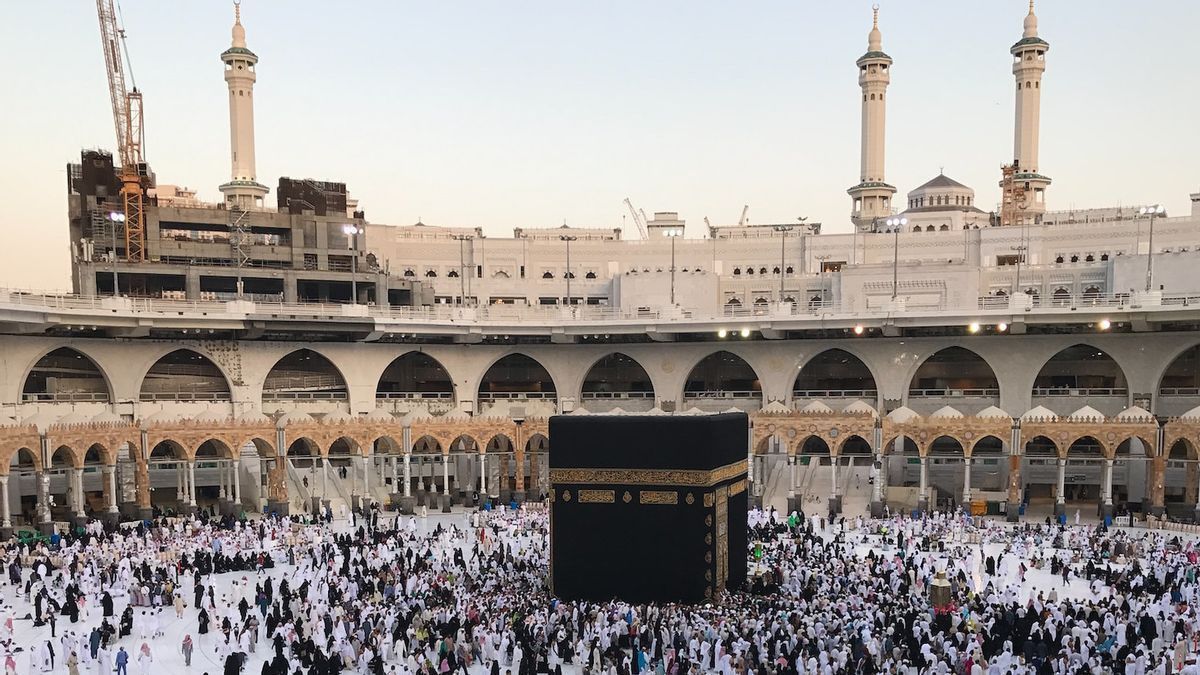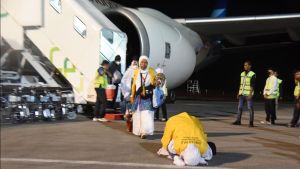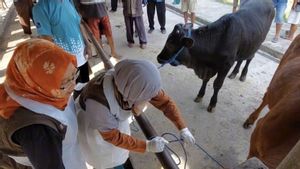The amount of the 2024 Hajj Implementation Fee (BPIH) was finally agreed at IDR 93.4 million per Hajj pilgrim.
"The performance of Commission VIII of the DPR RI in conducting the 2024 BPIH research and sweeping offers almost the same figure at Rp 93 million," said Deputy Chairman of Commission VIII DPR RI, Ace Hasan Syadzily, Friday, November 24.
The Ministry of Religion initially proposed BPIH 2024 at IDR 105 million per Hajj pilgrim. This figure is an increase of IDR 15 million from 2023, which is IDR 90,050,637.26 per regular Hajj. The Commission VIII Working Committee refused and asked the BPIH to not charge prospective pilgrims.
According to Ace, Panja decided to agree on an increase in BPIH for the 2024 Hajj implementation at Rp 93,410,286. Ace said the DPR continues to encourage the calculation of Hajj costs based on objective conditions from the previous year's costs.
"By paying attention to inflation in Saudi Arabia, adjustments to Saudi Arabia's Dollar and Riyal currencies as well as price adjustments for several components that we can lower, including flight costs, consumption and hotels or accommodation in Saudi Arabia," explained Ace.
In addition to the matter of total Hajj costs, the DPR Commission VIII Working Committee proposes payment of Hajj fees proportional to 60% paid directly for by the congregation (Bipih) and 40% covered from the value of benefits. The hope is that prospective pilgrims can receive subsidies for paying Hajj fees more optimally.
VOIR éGALEMENT:
As is known, BPIH is divided into two components, namely those directly charged to pilgrims or Bipih (Hajj Travel Biaya), and the components charged to benefit value funds (optimalization) through BPKH (Hajj Financial Management Agency).
Previously, 70 percent of the hajj costs were paid by prospective pilgrims through Bipih and 30 percent were taken from the value of the benefits. In 2023, it was agreed that the Bipih costs paid by the congregation were an average of Rp. 49,812,700.26 (55.3%), while those sourced from the average benefit value of Rp. 40,237,937 (44.7%). With the proposal from Panja, Ace said, the increase in Bipih would not be too large.
"With this composition, each congregation is estimated to pay an average of Rp 55 - 56 million per congregation. The rest is covered from the value of the benefits of Rp 38 million," he said.
Ace said the decline in the number of hajj costs that had been agreed upon by the Panja and the Government would soon be followed up with a decision as BPIH in 2024. He said the agreement was taken taking into account aspects of justice in the use of the value of the benefits of hajj funds managed by pilgrims.
To further reduce the burden on prospective pilgrims, Ace said that the DPR Commission VIII Working Committee also proposed that the payment of Hajj costs could be made in installments. Moreover, in 2024 there will be an additional quota of candidates for Indonesian Hajj pilgrims of 20,000.
"We will encourage the policy that prospective pilgrims can make repayment installments since the BPIH was decided by the DPR RI and the Government," said Ace.
On the other hand, the 2024 BPIH Panja also requested that the Government be able to maximize the use of quotas, including additional quotas to 241,000 pilgrims where the normal quota is only 221,000 pilgrims. According to Ace, this additional quota which is a factor in the use of the value of benefits can be maximized for the cost of Hajj.
"This number is the largest number of Indonesian pilgrims in the history of Indonesian Hajj. Of course, the large number of pilgrims will have consequences for the use of large value benefits as well," he explained.
Ace hopes that the decline in the proposed increase in BPIH will not have an impact on services for prospective pilgrims. Both in the country and in the Holy Land.
"With the decline in BPIH's proposal, we ask the Indonesian Ministry of Religion not to reduce the quality of Hajj services which have been getting better so far," concluded Ace.
The English, Chinese, Japanese, Arabic, and French versions are automatically generated by the AI. So there may still be inaccuracies in translating, please always see Indonesian as our main language. (system supported by DigitalSiber.id)

















